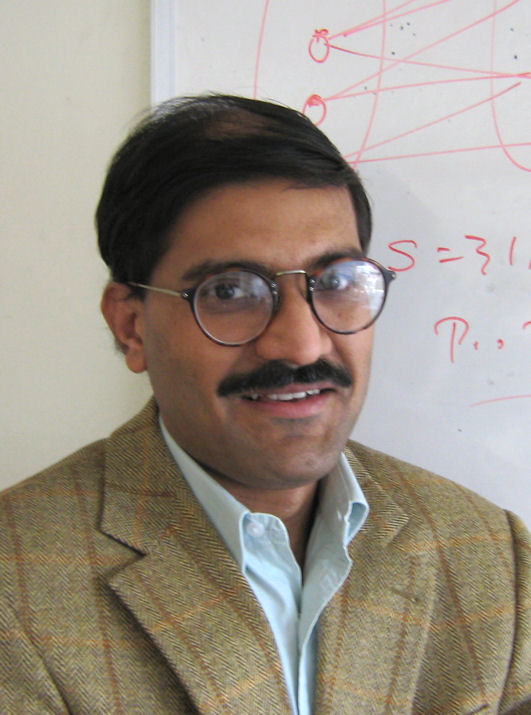
Lecture series are sponsored by
November 6, 2013: Prof. Sanjeev Goyal (Cambridge)
Trading in Networks: Theory and ExperimentsTime: 1:00pm - 2:00pm .
Place: Shannon Room (Room 54-134 Engr IV) , UCLA
Abstract: Intermediation is a prominent feature of production and exchange. Two features of intermediation are salient: coordination among traders between the `source' and the `destination' and competition between alternative combinations of intermediaries. We develop a general model of posted prices in networks to study these forces and we test its predictions in experiments.
Our theoretical analysis provides a complete characterization of equilibrium. Both efficient as well as inefficient equilibrium exist. Surplus division is extremal: either original buyer and eventual seller retain entire surplus or the intermediaries extract all surplus. Betweenness centrality of intermediaries determines which of the two outcomes prevails.
Laboratory experiments show that efficiency prevails in almost all cases, subjects coordinate on extreme surplus division: betweenness centrality plays a key role in shaping prices and division of surplus.
Biography:

Sanjeev Goyal is Professor of Economics at the University of Cambridge and Fellow of Christ's College, Cambridge. He is a pioneer and leading international scholar in the study of social and economic networks, with publications in leading international journals such as Econometrica, American Economic Review, Journal of Political Economy and Review of Economic Studies. In 2007, Princeton University Press published his book, `Connections: an introduction to the economics of networks'. A Chinese translation was published by Beijing University Press in 2010.
[Poster]